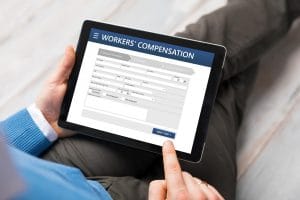New CA Law Will Qualify Gig Workers for Workers’ Compensation Benefits
 The California Assembly recently passed legislation which, essentially, adopts a California Supreme Court decision on whether workers should be categorized as employees instead of as independent contractors. California Governor Gavin Newsome signed the bill into law on September 18, 2019; it is designed to help many workers in the “gig” economy, such as rideshare drivers for Lyft and Uber.
The California Assembly recently passed legislation which, essentially, adopts a California Supreme Court decision on whether workers should be categorized as employees instead of as independent contractors. California Governor Gavin Newsome signed the bill into law on September 18, 2019; it is designed to help many workers in the “gig” economy, such as rideshare drivers for Lyft and Uber.
The LA Times states that up to a million California workers could benefit. The law applies a three-part test to determine if a worker is an independent contractor or an employee. In addition to helping workers qualify for workers’ compensation, classification as an employee means the workers will be entitled to other benefits, too, such as minimum wage laws, overtime requirements, disability benefits, and the right to file discrimination complaints.
Uber, Lyft and DoorDash have threatened to spend millions of dollars on a 2020 ballot initiative opposing the laws unless the law carved out an exception for their drivers and companies that are “app” based. Their argument is that since they are really tech companies, and not ride providers, they should be exempt. The new law, however, does not include that exemption.
California is not the only state attempting to secure additional rights and benefits for gig workers. New York City, for example, has passed legislations that secures a minimum wage for “ride-hailing drivers,” though attempted to pass similar types of legislation in Oregon and Washington State have failed – for now.
The new employee test
The three-part test is based on the California Supreme Court case involving “Dynamex Operations West, a national package delivery company that reclassified its employees as independent contractors, forcing them to use their own vehicles and pay for gas and other expenses.”
The court case and law provide that workers should be classified as employees (and not independent contractors) “If their jobs are central to a company’s core business or if the bosses direct the way the work is done.”
The Wage and Hour Division of the federal Department of Labor considers the following factors in determining who is an independent contractor, and who is an employee:
- “The extent to which the services rendered are an integral part of the principal’s business.
- The permanency of the relationship.
- The amount of the alleged contractor’s investment in facilities and equipment.
- The nature and degree of control by the principal.
- The alleged contractor’s opportunities for profit and loss.
- The amount of initiative, judgment, or foresight in open market competition with others required for the success of the claimed independent contractor.
- The degree of independent business organization and operation.”
For the purpose of the new legislation, per the San Francisco Chronicle, a gig worker can still be considered an independent contractor if he or she does not do work that is central to the core business of the company, has his or her own independent business in the same trade, and is free from the control of the company.
Workers’ compensation rights for employees and independent contractors
Generally, employees who are injured while working on their job can file a workers’ compensation claim against their employers. Independent contractors must file a personal injury claim against the employer:
- In workers’ compensation cases, the employee does not need to prove fault. Contributory negligence is not a factor. Provided the accident happened at work and the injuries are due to the accident, the employee is entitled to work injury benefits. Work injury benefits are generally 2/3 of the worker’s wages until he/she can return to work and payment for all medical expenses to get and stay healthy. Employees who suffer an occupational illness can also seek workers’ compensation benefits.
- In personal injury cases, independent contractors must prove the employer was negligent in some way. If negligence can be proved, the independent contractor can seek payment for all his/her lost wages, the medical bills, and payment for pain and suffering.
If a product such as a machine caused an accident, both employees and independent contractors can file product liability claims against the product manufacturer.
The experienced Oklahoma City injury lawyers at Cunningham & Mears fight to show workers are properly classified as employees. We fight for workers so that they are not forced back to work until they are healthy. For help with your work injury case, call us at 405.212.9234 or use our contact form to schedule an appointment.

Ryan Y. Cunningham is a founding partner of Cunningham & Mears. Mr. Cunningham devotes his practice to protecting the rights of injured Oklahoma residents. In addition to assisting injured clients, Mr. Cunningham endeavors to improve personal injury representation by speaking on issues related to personal injury law to attorneys in continuing legal education courses and to law students. Learn More
